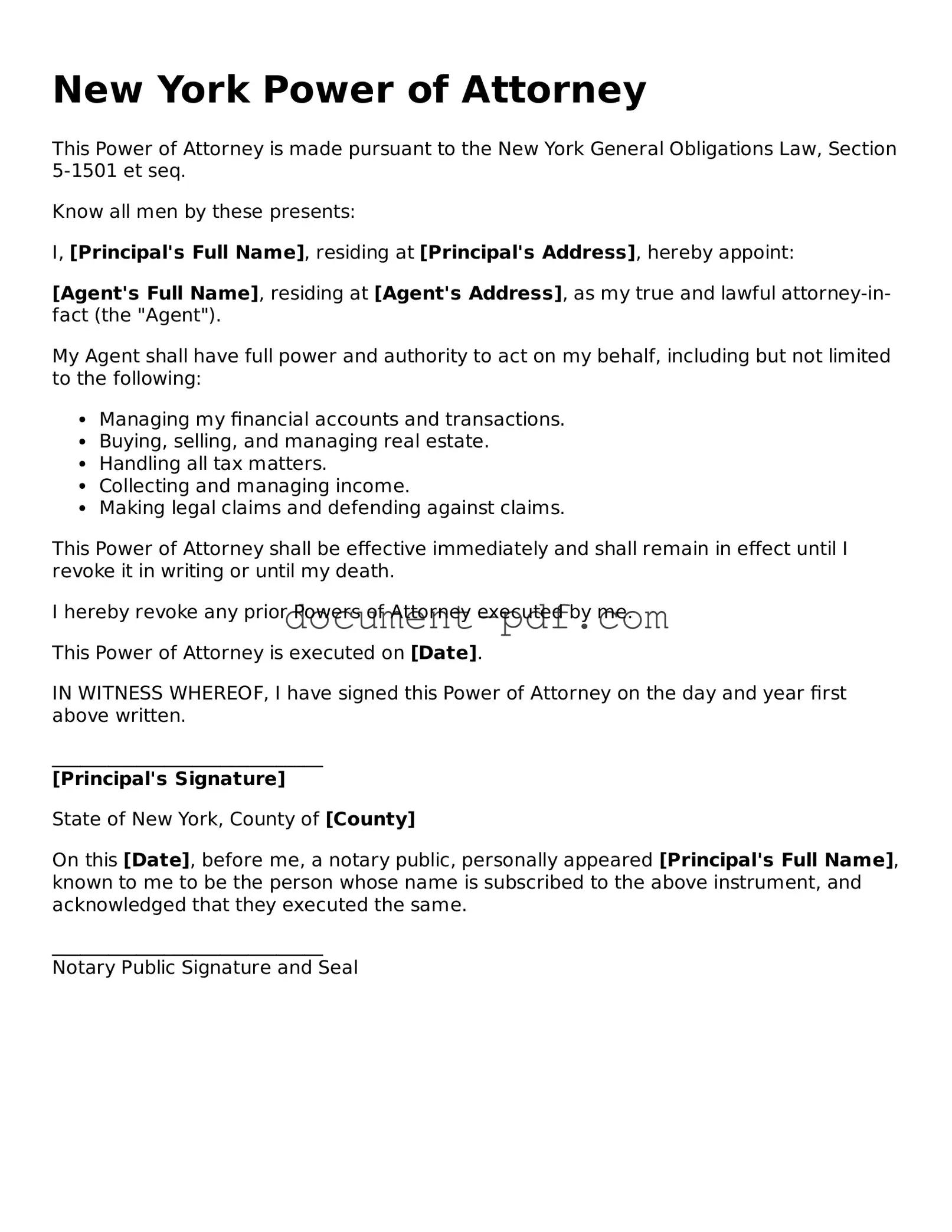Attorney-Verified New York Power of Attorney Template
The New York Power of Attorney form is a legal document that allows an individual to appoint someone else to make decisions on their behalf, particularly regarding financial and legal matters. This form is crucial for ensuring that your wishes are honored when you are unable to manage your affairs. Understanding its significance can empower you to make informed choices about your future.
Ready to take control of your financial decisions? Fill out the form by clicking the button below.
Access Power of Attorney Editor Here

Attorney-Verified New York Power of Attorney Template
Access Power of Attorney Editor Here
Finish the form without slowing down
Edit your Power of Attorney online and download the finished file.
Access Power of Attorney Editor Here
or
Click for PDF Form
